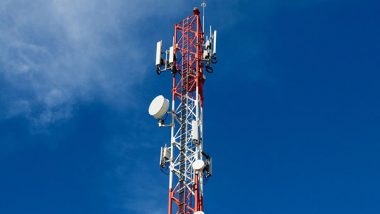New Delhi [India], July 16 (ANI): The latest tariff hike and growing data consumption are expected to lift the average revenue per user (ARPU) per month for Indian telecom companies, according to Crisil Ratings.
It is projected that the average revenue per user will jump by 25 per cent in fiscal 2025-26 compared with fiscal 2023-24.
That, along with moderation in capital expenditure (capex), on account of lower network investments after the completion of 5G rollouts and limited spectrum renewals, is likely to enhance return on capital employed (RoCE), besides improving credit profiles.
The revenue growth will be gradual over this fiscal and the next as the tariff hike becomes effective on the next recharge cycle for long-duration plans. It will improve operating profitability, which shall lift the industry RoCE to 11 per cent next fiscal from 7.5 per cent in fiscal 2023-24.
Also Read | Cyber Attack: Hackers Breach Server of a Bank in Noida, Steal INR 16.71 Crore.
Crisil asserted that the industry has seen a long period of suppressed RoCEs, due to substantial investments made towards the rollout of each generation of technology and the associated spectrum liabilities.
"The industry ARPU should dial up to a decadal high of Rs 225-230 by the end of next fiscal compared with Rs 182 last fiscal. This increase will have two distinct levers - one, the recent tariff hikes...by telcos and, two, organic growth in data usage amid increasing 5G penetration. Customers have been uptrading their plans because of rising content consumption via video streaming, social media, and online gaming resulting in higher ARPUs," said Manish Gupta, Senior Director and Deputy Chief Ratings Officer, of CRISIL Ratings.
While network-related capital expenditure for fiberisation of telecom towers, setting up of base transceiver stations, and small cells for augmentation of networks is expected to continue, it will be at a slower pace.
Similarly, new spectrum capex is also likely to reduce as most of the spectrum purchase was completed in fiscal 2023 and the next significant spectrum renewal will be due in 2030.
"This was visible in the recent auction held in June 2024 which saw bids for only Rs 11,341 crore, or 12 per cent of the total airwaves on offer. Nearly half of the amount spent was on spectrum renewals," Crisil said.
Anand Kulkarni, the Director, CRISIL Ratings, asserted that the moderation in capex as well as healthy profitability will enable telcos to pare their debt to Rs 5.6 lakh crore next fiscal from peak debt of Rs 6.4 lakh crore in fiscal 2023-24.
"Around half of the debt on the balance sheets is for spectrum purchase, which has a long repayment schedule. Debt reduction will help the industry to improve debt-to-ebitda to less than 3 times next fiscal from 4.3 in fiscal 2024. Resultantly, the credit risk profiles are expected to improve," Kulkarni added.
Faced with tight market dynamics, the telecom operators, Jio, Airtel, and Vodafone Idea, raised prepaid tariffs in a range of 17-19 per cent, invariably, a few days ago. (ANI)
(This is an unedited and auto-generated story from Syndicated News feed, LatestLY Staff may not have modified or edited the content body)













 Quickly
Quickly










 GT
GT







